Sweet Dreams, Sustainable Slumber: Choosing Organic Bedding for Your Baby's Crib
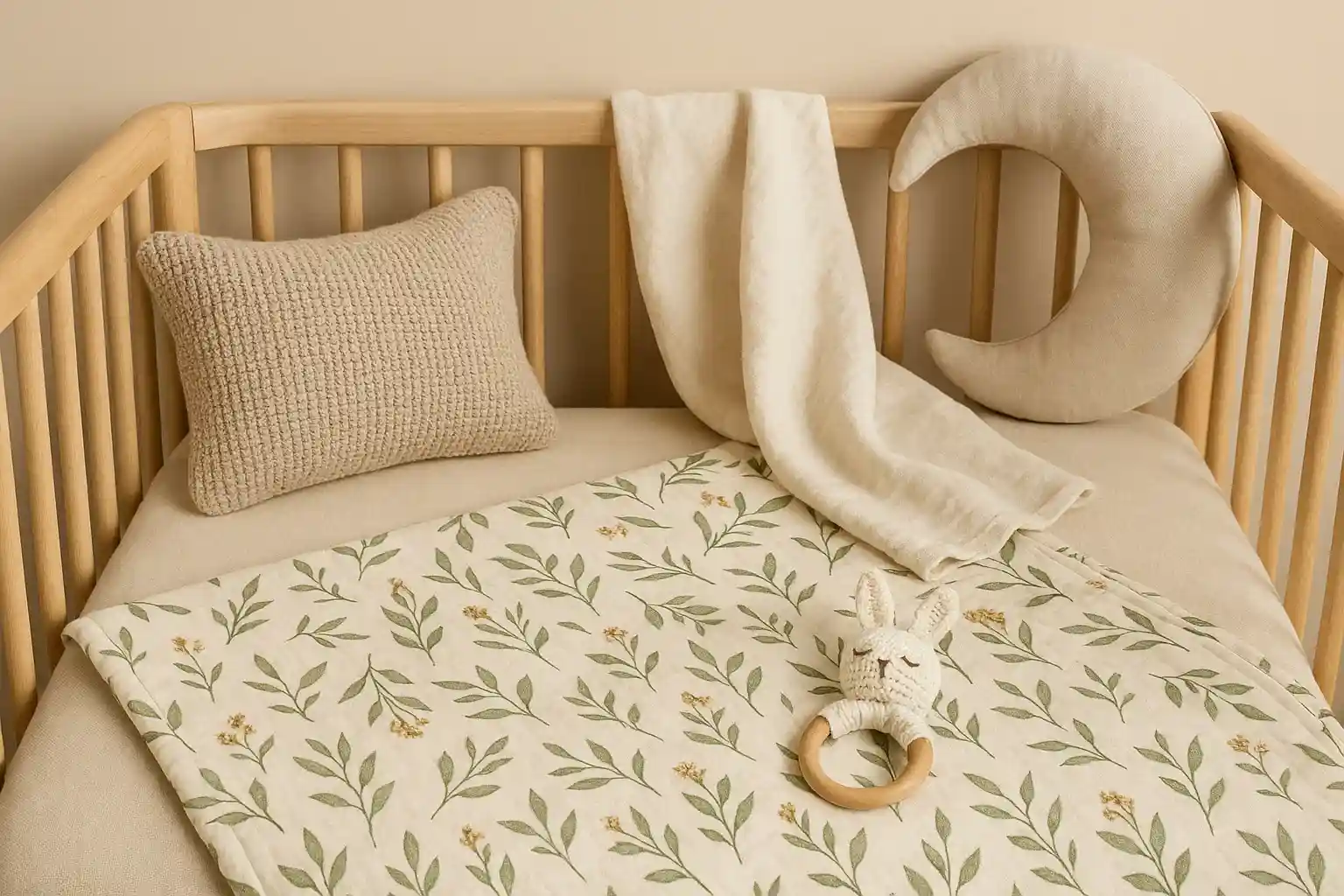
Creating a safe and nurturing sleep environment is paramount for a baby's healthy growth and development. The crib, their primary sleep space, should be a haven of comfort and security. However, conventional crib bedding, often made from non-organic cotton or synthetic materials, can introduce potential health risks and contribute to environmental concerns. Non-organic cotton is often grown with pesticides and herbicides, and synthetic fabrics can release volatile organic compounds (VOCs). For environmentally and health-conscious parents, opting for natural and organic alternatives for their baby's bedding is a crucial step towards ensuring a purer and more sustainable sleep environment.
The concerns surrounding non-organic crib bedding stem from both the materials used and the potential for chemical exposure. Conventional cotton farming utilizes a significant amount of pesticides and herbicides that can leave residues on the fibers, potentially irritating a baby's sensitive skin. Synthetic fabrics like polyester are derived from fossil fuels and can off-gas VOCs, contributing to indoor air pollution. Furthermore, the dyes and finishes used in many conventional bedding products can also contain harmful chemicals. Recognizing these potential risks, many parents are seeking safer and more natural options for their baby's delicate sleep space.
Fortunately, a variety of excellent alternatives exist that prioritize both a baby's comfort and environmental well-being. By choosing GOTS-certified organic sheets, opting for the soft and sustainable bamboo bedding, or selecting second-hand bedding in good condition, parents can create a breathable, chemical-free, and lower-impact sleep environment for their little ones. These options prioritize natural and renewable resources, minimize exposure to harmful substances, and reduce textile waste.
A Sanctuary of Sustainable Sleep: Exploring Eco-Friendly Crib Bedding Alternatives
Moving beyond conventional, non-organic crib bedding opens up a world of safer and more environmentally conscious choices for your baby's sleep space:
GOTS-Certified Organic Sheets: Purity and Peace of Mind
GOTS (Global Organic Textile Standard) certified organic sheets represent the gold standard in eco-friendly bedding. This certification ensures that the cotton used is grown without synthetic pesticides or fertilizers and that the entire manufacturing process, from harvesting to processing and dyeing, meets stringent environmental and social criteria. Choosing GOTS-certified organic sheets guarantees a breathable, chemical-free, and gentle surface for your baby's delicate skin. Brands like Burt’s Bees Baby, Coyuchi, and Under the Nile offer a wide range of beautifully soft and GOTS-certified organic crib sheets.
Bamboo Bedding: Silky Softness and Sustainable Growth
Bamboo bedding offers a naturally soft, breathable, and sustainable alternative to conventional cotton and synthetics. Bamboo is a fast-growing plant that requires minimal water and no pesticides or herbicides, making it an environmentally friendly resource. Bamboo fabric is known for its silky smooth texture and excellent moisture-wicking properties, helping to regulate a baby's body temperature and promote comfortable sleep.
Second-Hand in Good Condition: Reducing Textile Waste
Considering second-hand crib bedding in good condition is a practical and highly sustainable way to minimize textile waste and save resources. Baby bedding often has a relatively short lifespan before being outgrown or no longer needed. Exploring thrift stores, consignment shops, and hand-me-downs from friends and family can provide a treasure trove of gently used organic or natural fiber bedding at a fraction of the cost of buying new. Thoroughly washing second-hand bedding with a gentle, fragrance-free detergent ensures cleanliness for your baby.
Creating a Sustainable Sleep Space: Mindful Choices
Choosing organic or natural fiber bedding is a significant step towards a healthier and more sustainable nursery. Consider these additional mindful practices:
- Minimal Bedding: Avoid using loose blankets, pillows, and bumpers in the crib, following safe sleep guidelines.
- Natural Laundry Detergents: Wash baby bedding with fragrance-free and eco-friendly detergents.
- Air Dry When Possible: Air-drying bedding saves energy and is gentler on fabrics.
By consciously choosing sustainable alternatives for your baby's crib bedding, you can create a safe, comfortable, and environmentally responsible sleep environment for your little one.
Related Blogs
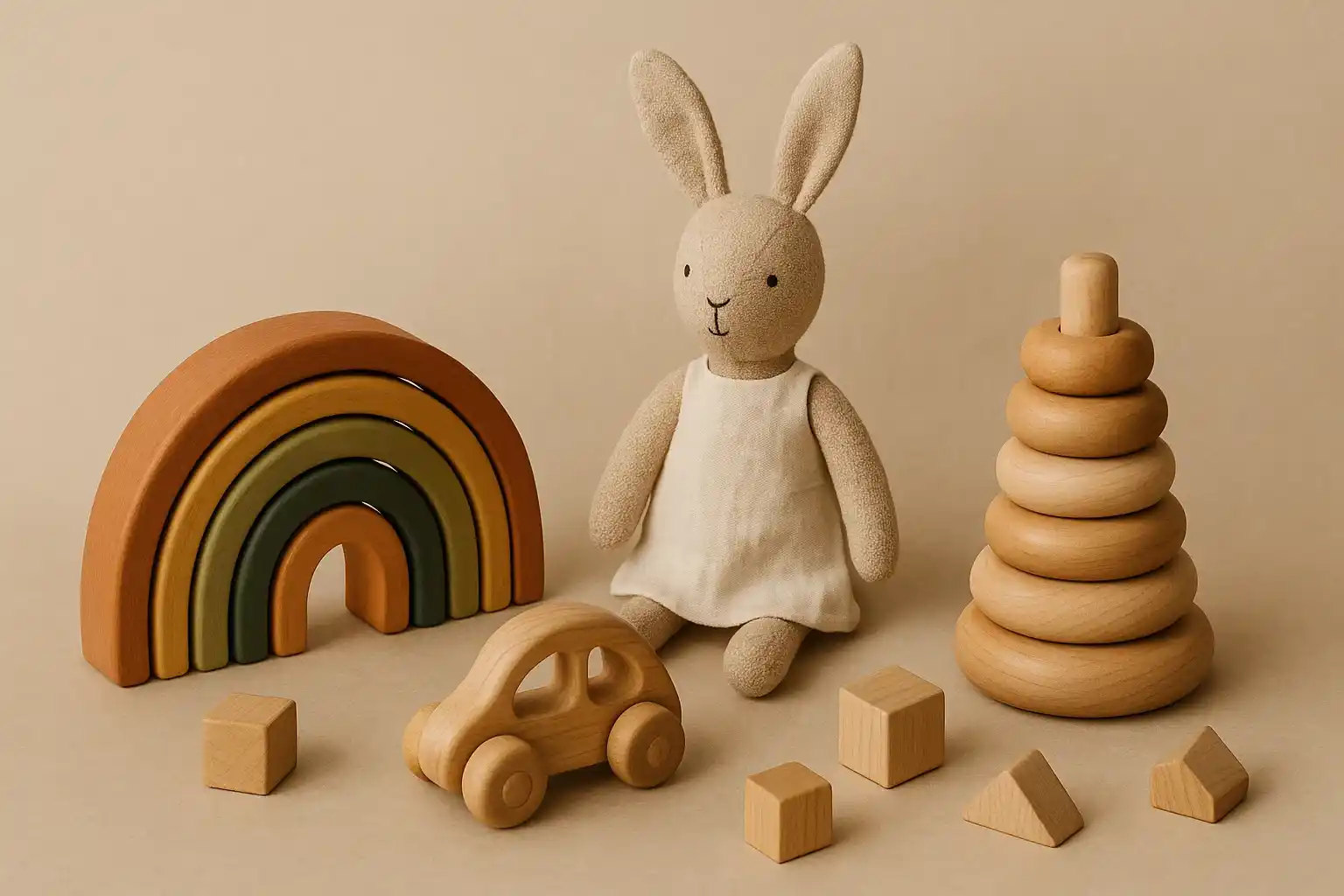
Unplug and Imagine: Choosing Battery-Free Toys for Engaging and Sustainable Playtime
Foster imagination and save energy with manual musical toys, story books, and nature play.
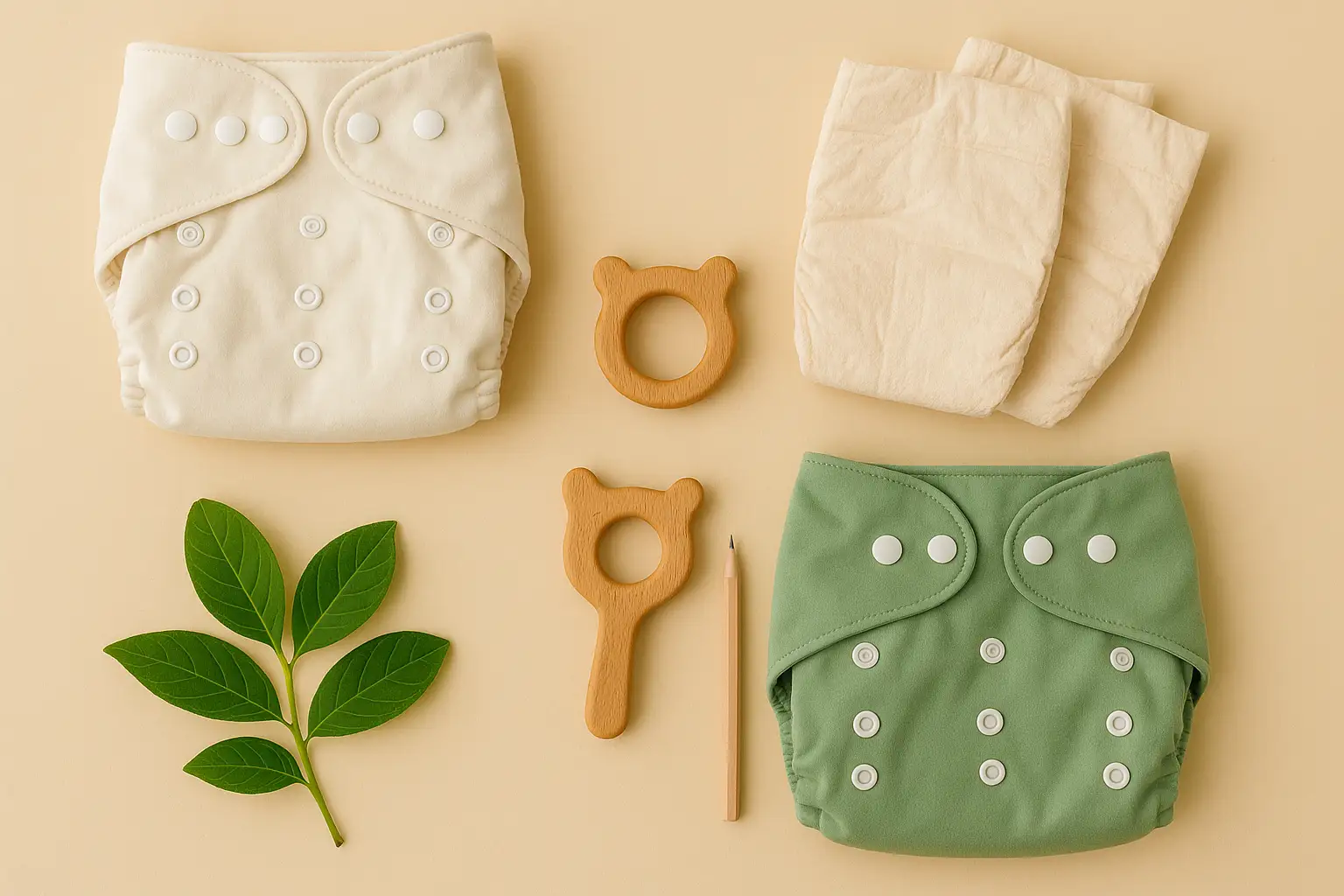
The Great Diaper Debate: Navigating Cloth vs. Eco-Disposables for a Sustainable Start
Comparison of sustainable alternatives to help you make informed decisions.
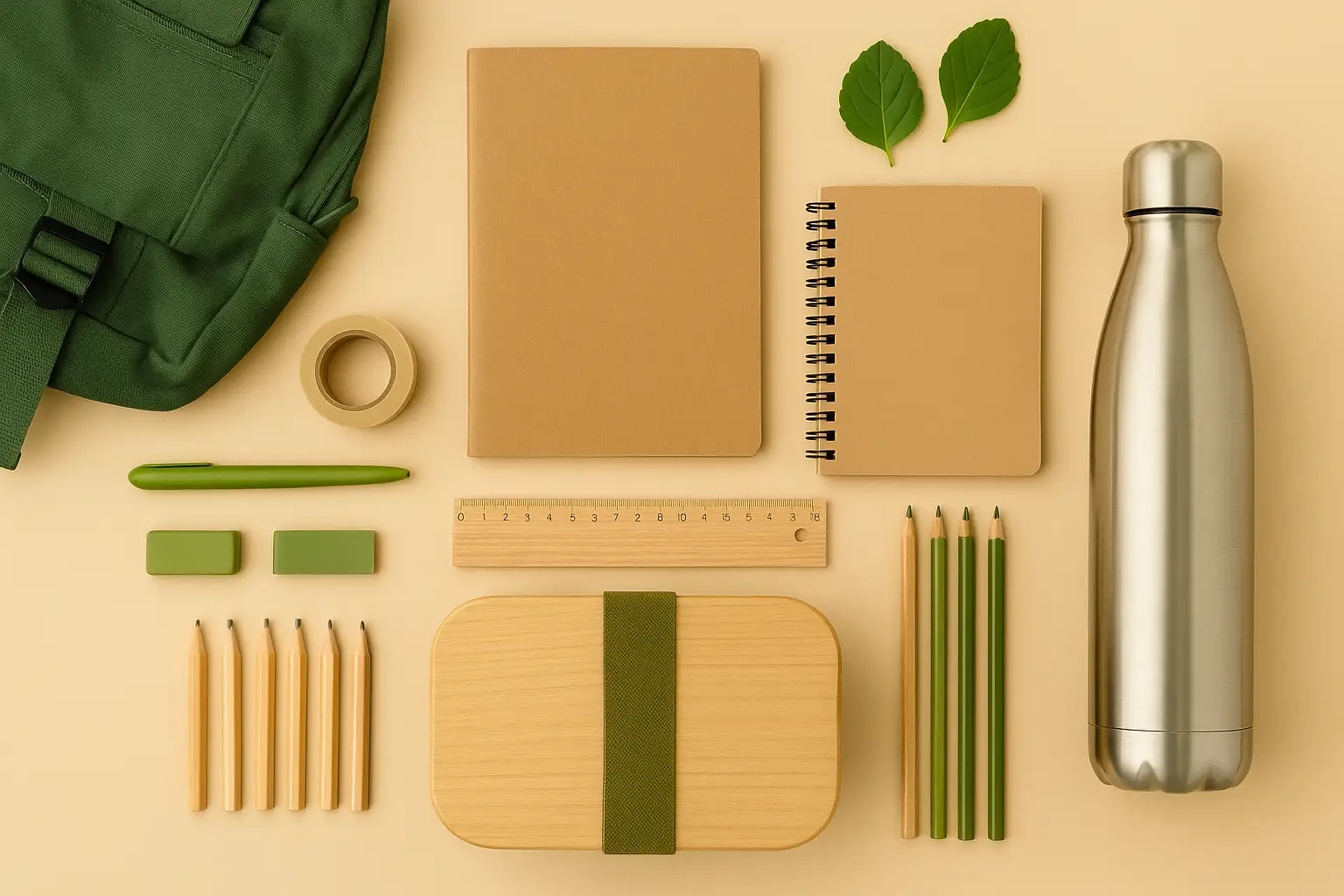
Equipping Young Minds, Protecting Our Planet: Sustainable School Supplies Kit
Insights on creating a sustainable school supplies kit in a sustainable way.
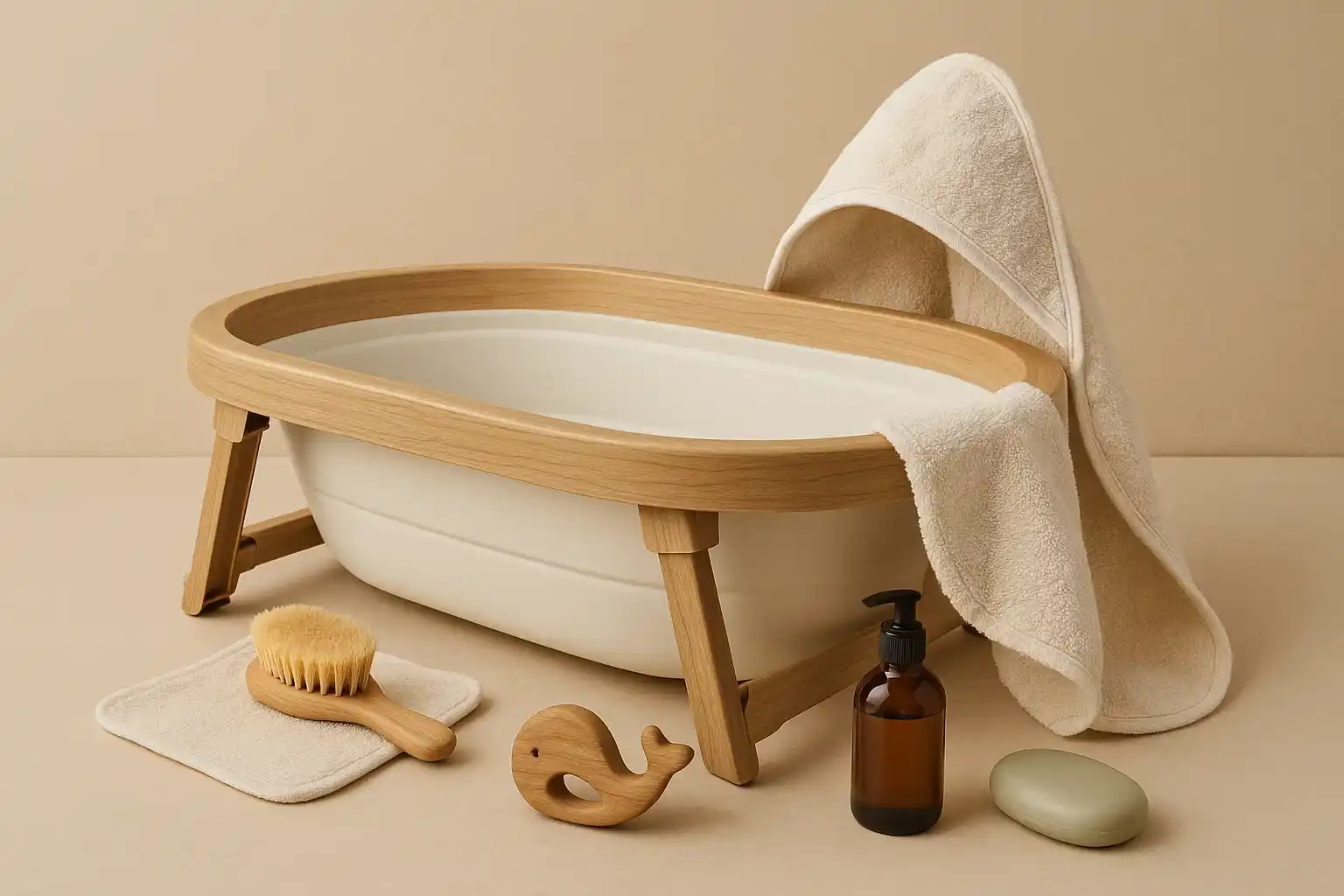
Bathtime, Simplified: Eco-Friendly Alternatives to Bulky Plastic Baby Baths
Reduce manufacturing impact and clutter with sink bath seats, inflatable tubs, or repurposed containers.
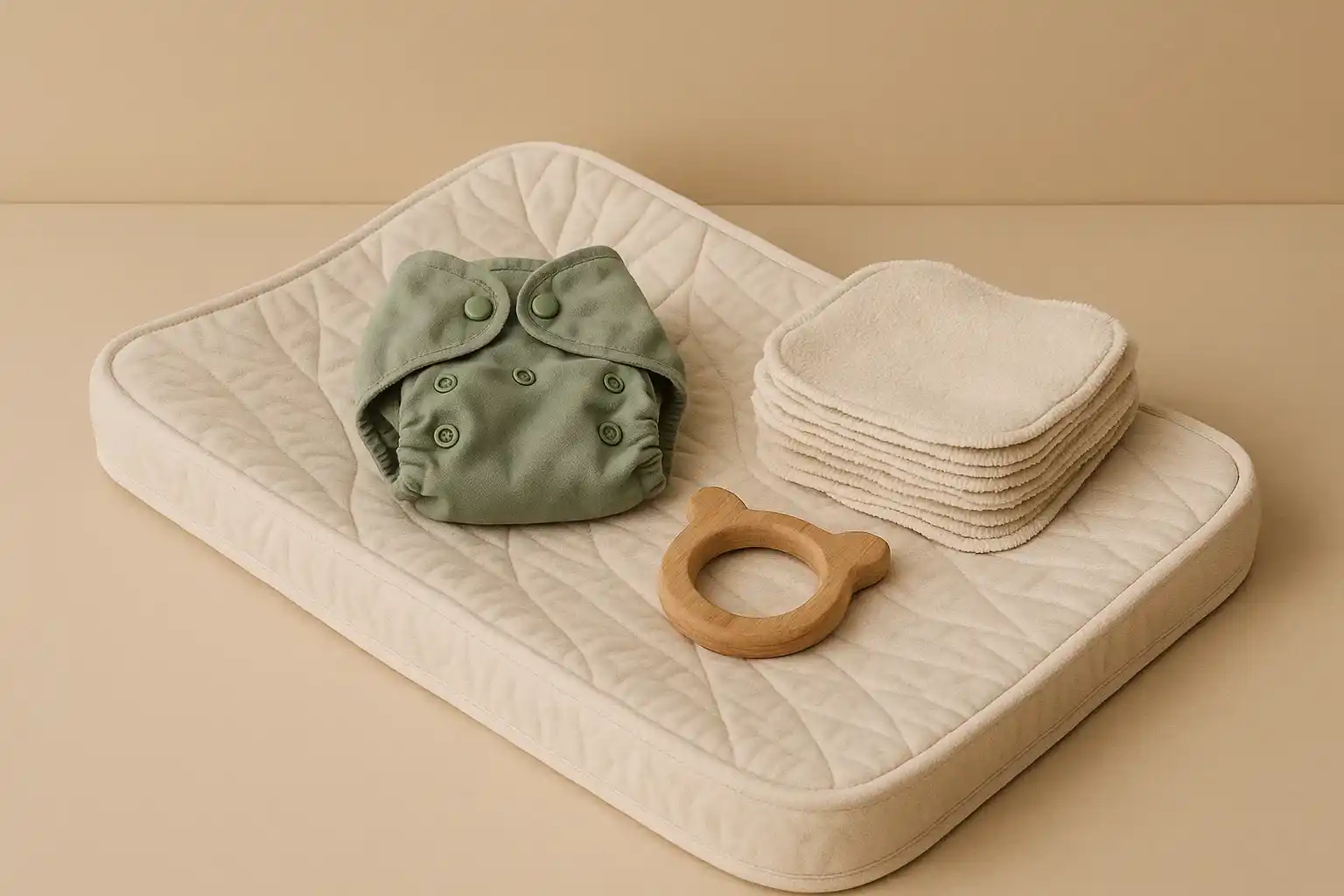
A Gentle Foundation: Choosing Eco-Friendly and Non-Toxic Changing Mats for Your Baby
Opt for organic cotton, cork-based, or recycled textile changing mats free from PVC and phthalates.
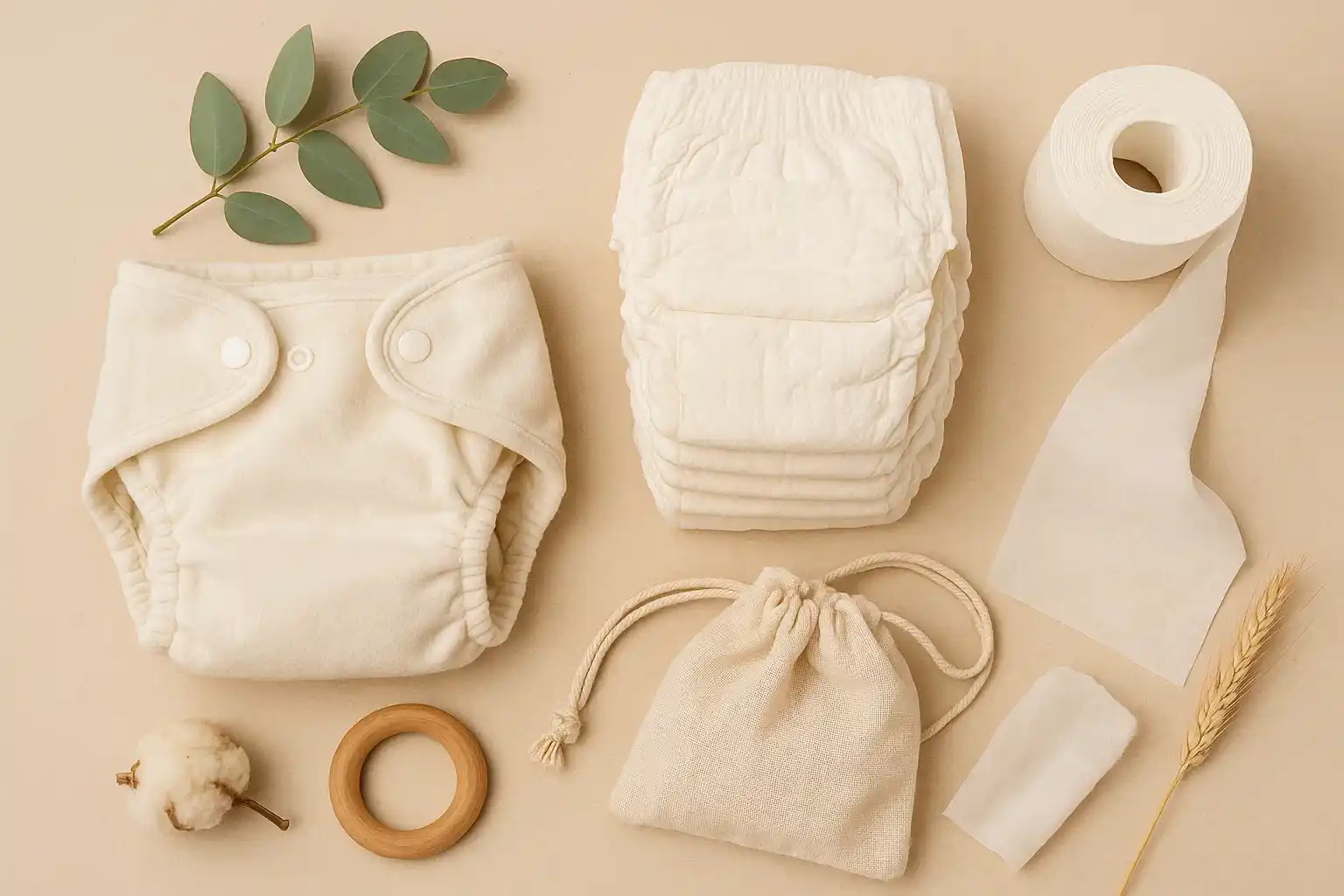
Diapering with Intention: Exploring Eco-Friendly Alternatives to Disposable Diapers
Cut down drastically on landfill waste with cloth, compostable, or hybrid diaper systems.
Stay in the Loop
Get tips and insights tailored to your interests — no spam, just sustainability.